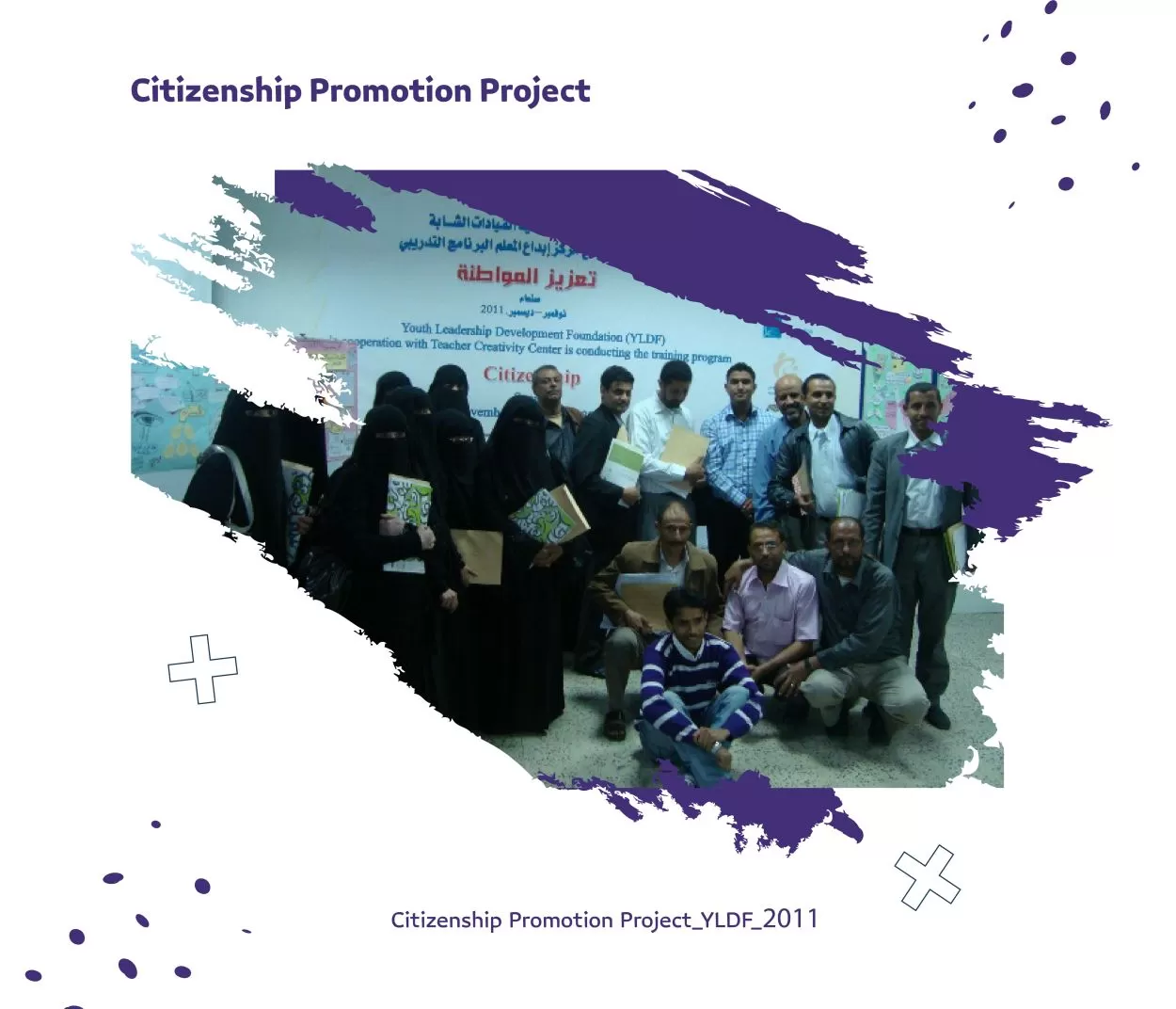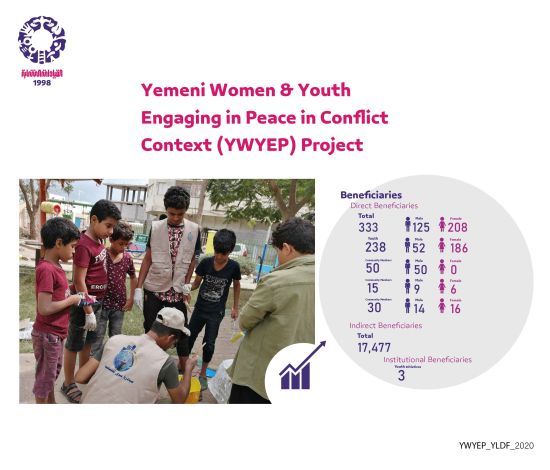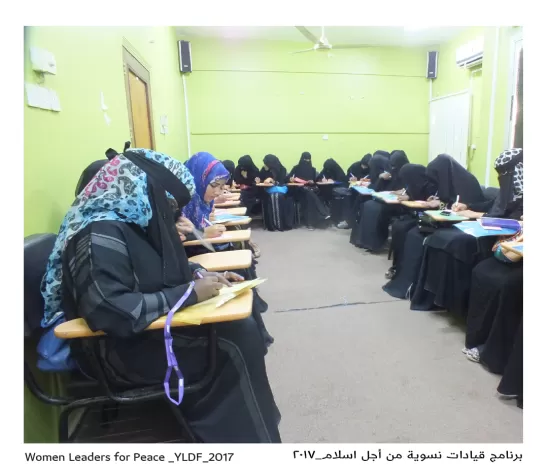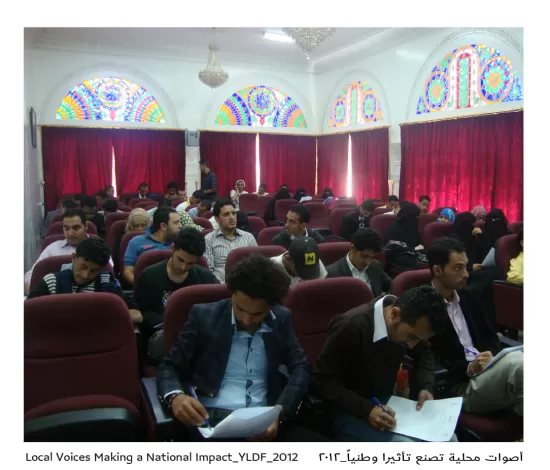Citizenship Promotion Project
The Citizenship Enhancement Project is a regional project implemented in eight Arab countries (Egypt, Jordan, Palestine, Yemen, Sudan, Lebanon, Morocco, and Iraq). The project was implemented in two stages by the Young Leaders Development Foundation at the Global Languages Center for Girls, in partnership with the Arab Network for Education on Human Rights and Citizenship / ANHAR, the Teacher Creativity Center, and the Future Foundation. It is a multidisciplinary curriculum that uses interactive educational tools and cooperative learning strategies, and focuses on critical thinking, problem-solving, and decision-making skills. The project aims to teach and disseminate the principles and concepts of citizenship by engaging young people (school students) in implementing their own project in schools with their trained teachers.
In cooperation with the Capital Municipality and the Ministry of Education represented by the Education Office in the Capital, the Foundation trained 40 teachers in the first stage on the principles and concepts of citizenship in three educational areas (Mu'ayn, Al Wahda, and Old Sana'a), and in the second stage, the Foundation employed 20 social studies teachers from 20 schools in the Safiya and Azal areas. The training aims to help trainees improve their abilities to participate efficiently, effectively, and responsibly in the political system as citizens, and to develop intellectual and collaborative skills that enhance the research process based on logical arguments, critical thinking, effective communication, and deep thinking. It also encourages trainees to exercise basic rights, equips teachers with new skills and methods for teaching students in schools, improves democratic attitudes to encourage the practice of basic rights, responsibilities, commitment, and trust, and helps trainees understand how to monitor the policy-making process in society and its impact. The training was mainly based on the Yemeni Citizenship Guide.
Each teacher and school then trained the targeted male and female students in basic stages (seventh and eighth grade) and secondary school (first and second year of high school) on the Citizenship Enhancement Project. They did so by choosing a specific problem such as poverty, unemployment, child labor, pollution, begging, smoking, low level of education, domestic violence, carrying weapons, youth delinquency, free time, or the harms of qat. They then represented it in four separate panels. The first panel identified the problem, its importance, causes, and effects on society, the second panel discussed the general policies of the Yemeni constitution and its effectiveness in addressing the problem by mentioning the positives and negatives and identifying the supporting and opposing groups for the policy, the third panel presented alternative solutions, policies, and proposals suggested by the students themselves, and the fourth panel included an action plan explaining how to solve the problem and apply all the proposed solutions.
Local judging was conducted for the 40 participating schools from May 23-25, 2012, after the first stage of the Citizenship Enhancement Project was implemented in November and December 2011. Kuwait School won first place in this judging, which was conducted by the Young Leaders Development Foundation/Global Languages Center for Girls and the Ministry of Education represented by the Education Office in the Capital. Kuwait School represented Yemen in the regional judging held in Amman, Jordan on Monday, July 2, 2012, which included the eight Arab countries. Kuwait School also won first place in the regional judging, and the problem it addressed in its project was "child labor." After the great success in the regional judging in Amman, the Young Leaders Development Foundation held a press conference on July 7, 2012, to celebrate winning first place regionally in the Citizenship Enhancement Project in Sana'a, represented by Kuwait Model School, which received a distinction shield, and in the presence of several journalists and media personnel.







